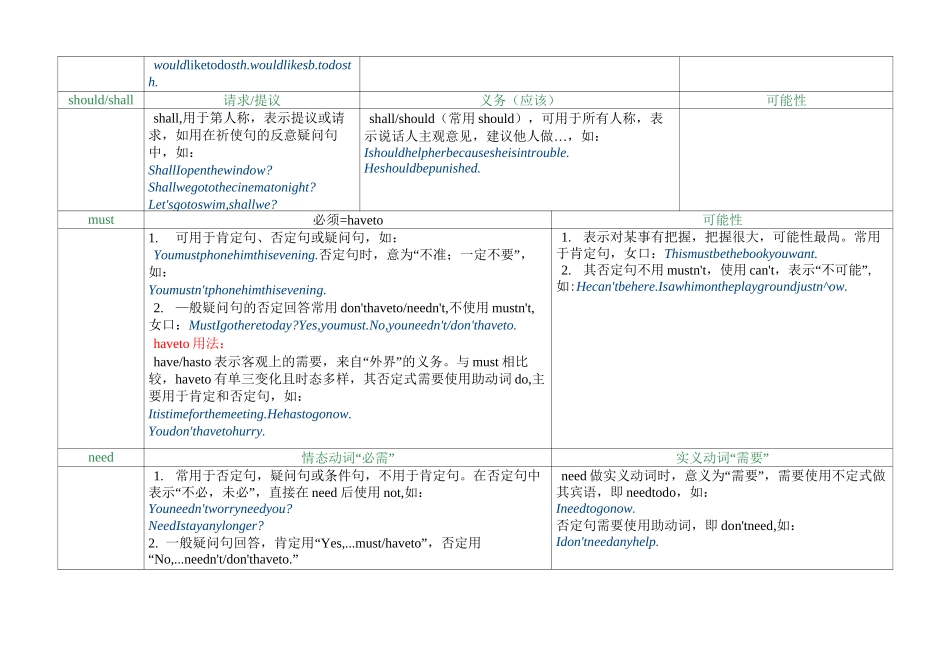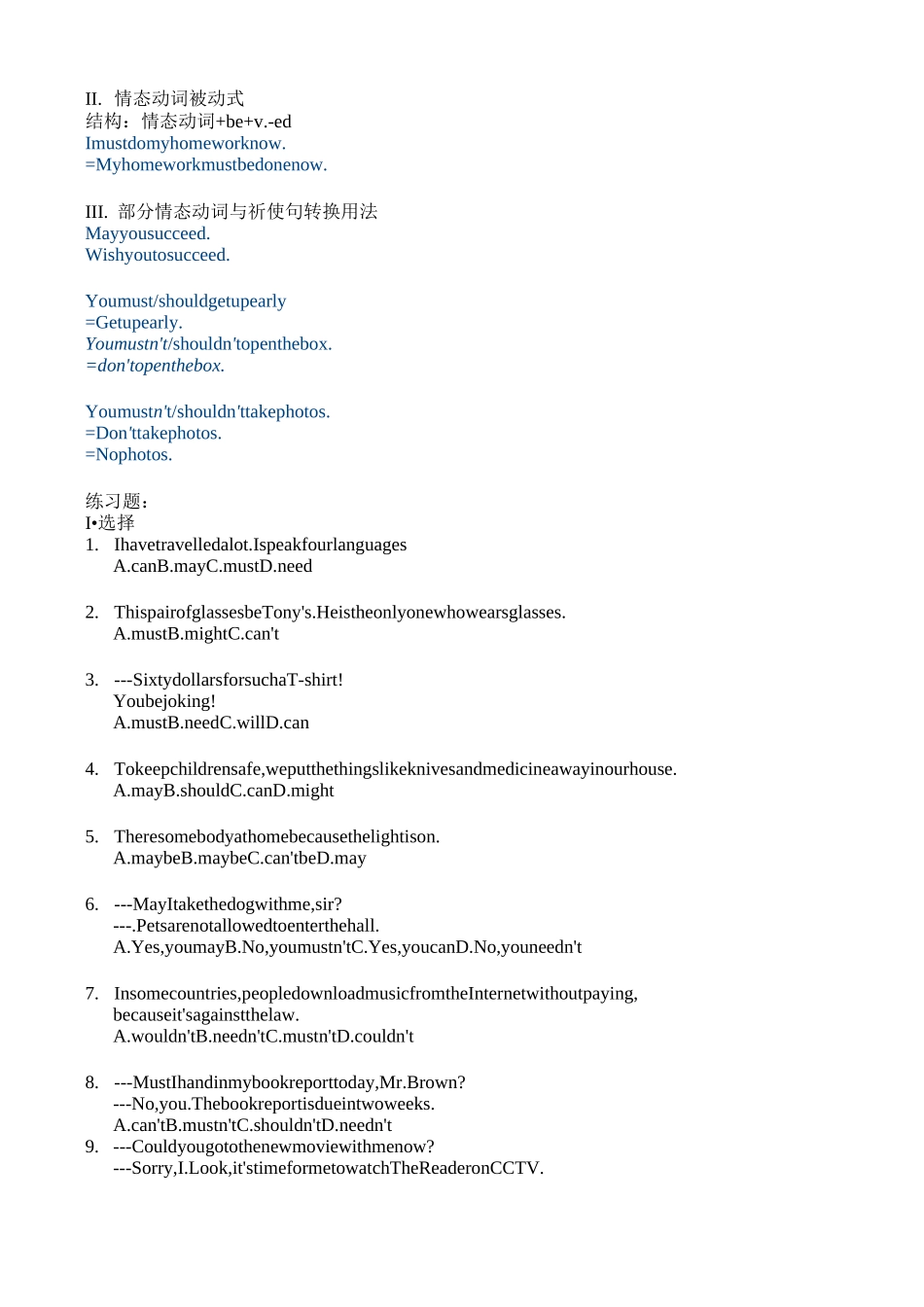情态动词can/could能力(脑力/体力)=beableto允许/请求可能性1.指脑力或体力方面的"能力",如:IcanspeakEnglish.could 用于过去时,表示过去的能力,如:Mysistercouldtalkwhenshewastwo.2.可以与 beableto 互换(can 只有一般现在时与过去时,beableto 可用于各种时态)。Icanclimbthetree.=Iamabletoclimbthetree.1.般表示客观情况的“允许”'Canwegohomenow,please?''Noyoucan't.'(客观允许)2.could 不表示过去时,只表示委婉的语气。CouldyouhelpmewithmyEnglish?3.—般疑问句作答时,肯定时用“Yes,主语+can.";否定答语用"No,主语+can't/cannot.1•“客观上(理论)的可能性”,如:TherecanbelivesonMars.2.表示现实可能性时,can 常常用在否定句、疑问句及感叹句中,持怀疑、不相信或惊叹等态度,为must 的反义词,如:HanMeican'tbeintheclassroommay/might1.表示说话人主观的“允许”,如:MayIputmythingshere?我可以把我的东西放这儿吗?(主观允许)有时可以互换使用,can 较口语,may 较正式,如:Youmay/cangotothecinemathisevening2.—般疑问句答语,肯定时可以使用 Yes,youmay.但较生硬,可以答为 Yes,please./Certainly./Ofcourse.否定答语时 No,youmustn't./No,youcan't.或Sorry,youcan't./No,pleasedon't.3. might 不表示过去时,只表示比 may 更委婉,礼1.“主观上(现实)的可能性”,常用于肯定句,如:Imaybelate,sodon'twaitforme.2.may 通常不用在疑问句中will/would意愿/决心基本助动词(用于将来时)可能性1. 意为“愿意”,如:Hewillhelpyouifyouaskhimwould 不表示过去时,只表示比 will 更加委婉,如:Wouldyoupassmethesalt?2. wouldlike表示“想要…;乐意…”wouldlikesth.表示未来要发生的事1.用于表示将来时,如:Idon'tknowwhetherhewillcomeheretomorrow.2. would 为过去式,用于过去将来时,如:Ididn'tknowwhetherhewouldcomeherethenextday.3. willdo/be 可以与 begoingto 结构互换,如:Iwilldosomeshoppingtomorrow.=Iamgoingtodosomeshoppingtomorrow.wouldliketodosth.wouldlikesb.todosth.should/shall请求/提议义务(应该)可能性shall,用于第人称,表示提议或请求,如用在祈使句的反意疑问句中,如:ShallIopenthewindow?Shallwegotothecinematonight?Let'sgotoswim,shallwe?shall/should(常用 should),可用于所有人称,表示说话人主观意见,建议他人做...


